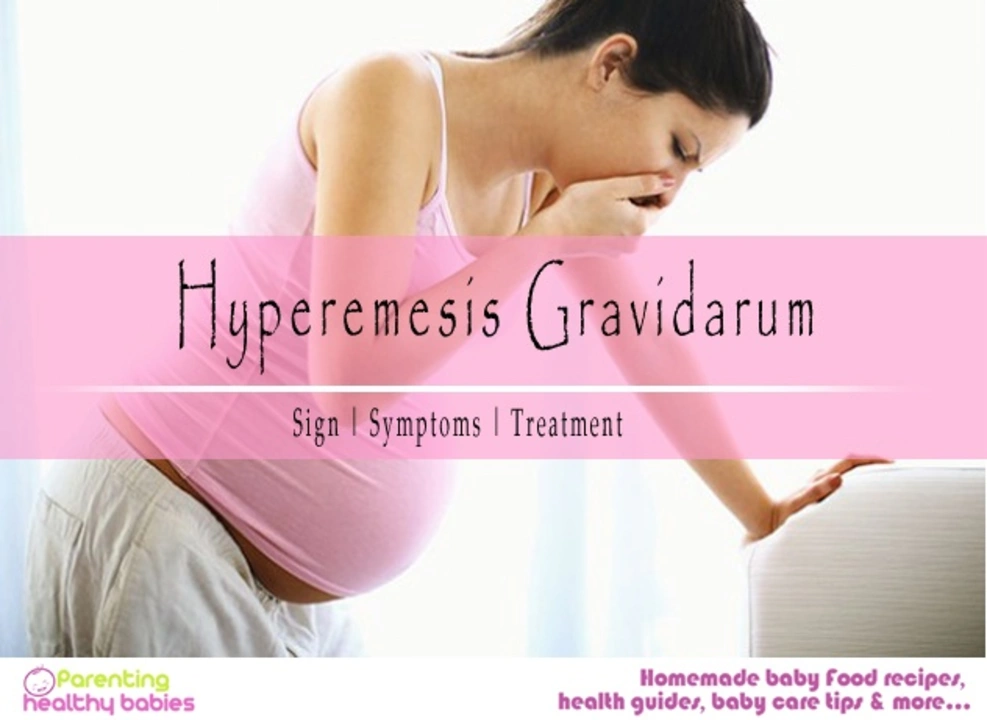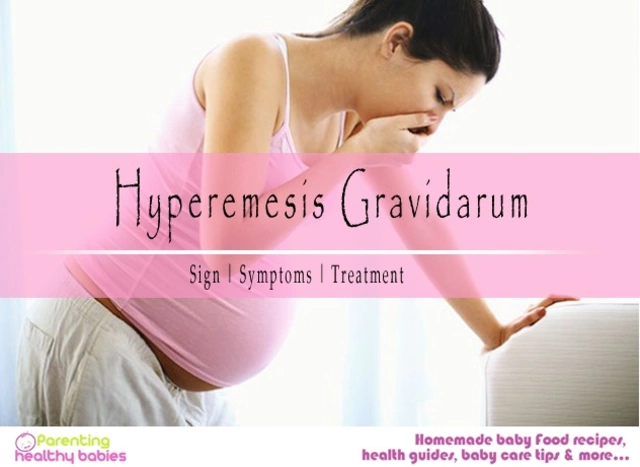Understanding Severe Vomiting During Pregnancy
Throughout pregnancy, many women experience some degree of morning sickness, which is usually mild and goes away after the first trimester. However, some women may face a more severe form of nausea and vomiting called hyperemesis gravidarum. This condition can be extremely debilitating and may require hospitalization to ensure the health of both mother and baby. In this section, we will discuss the symptoms and causes of severe vomiting during pregnancy, as well as the possible complications that may arise.
Managing Severe Vomiting During Pregnancy
Managing severe vomiting during pregnancy can be challenging, but it's essential to find ways to cope with the symptoms to ensure a healthy pregnancy. This might include dietary changes, such as eating smaller, more frequent meals and avoiding trigger foods. Staying hydrated is crucial, so try to sip on water, ginger ale, or clear broth throughout the day. Additionally, over-the-counter medications like vitamin B6 and antihistamines may help alleviate nausea, but it's important to speak with your healthcare provider before taking any medications during pregnancy. If your symptoms become unmanageable, don't hesitate to seek medical help immediately.
Postpartum Recovery: Physical Healing
After giving birth, your body goes through several changes as it begins to heal and recover from pregnancy and delivery. As a mother who experienced severe vomiting during pregnancy, it's crucial to prioritize your physical healing during the postpartum period. This may include getting plenty of rest, staying hydrated, and maintaining a healthy diet to replenish lost nutrients. If you had a vaginal delivery, you might experience soreness and discomfort, so using ice packs, sitz baths, or over-the-counter pain relievers can help alleviate pain. For those who had a cesarean section, it's essential to follow your healthcare provider's instructions regarding incision care and pain management.
Postpartum Recovery: Emotional Healing
Experiencing severe vomiting during pregnancy can take a significant emotional toll on expectant mothers. It's not uncommon for women who have gone through such a difficult pregnancy to experience feelings of anxiety, depression, or even guilt. It's essential to prioritize your emotional healing during the postpartum period. Reach out to your support system, whether that's your partner, family, friends, or a mental health professional. Talking to other women who have experienced similar situations can also provide comfort and understanding. Remember that it's okay to ask for help, and seeking professional guidance can be beneficial in navigating the complex emotions that come with postpartum recovery.
Regaining Your Strength and Energy
After a particularly challenging pregnancy, it's essential to focus on regaining your strength and energy during the postpartum period. Start by incorporating gentle exercise, such as walking or stretching, into your daily routine. As your body continues to heal, you can gradually increase the intensity and duration of your workouts. Be mindful of your body's limits and make sure to consult with your healthcare provider before starting any new exercise regimen. Additionally, maintaining a balanced diet rich in nutrients, such as iron, protein, and calcium, can help restore your energy levels and support your overall recovery.
Support for Postpartum Recovery
Having a strong support system in place is crucial for a successful postpartum recovery, particularly for women who experienced severe vomiting during their pregnancies. Don't hesitate to lean on your partner, family, and friends for help with household chores, childcare, or even just a listening ear. If you're struggling with breastfeeding, reach out to a lactation consultant or support group for guidance and encouragement. There are also numerous online resources and communities where you can connect with other mothers who have faced similar challenges during their pregnancies. Remember that you're not alone in this journey, and seeking help and support can make all the difference in your recovery and overall well-being.









Lisa Collie May 6, 2023
One would presume that the mere suggestion of hyperemesis gravidarum as a "mere inconvenience" betrays a profound ignorance of obstetric pathology. The post, while earnest, neglects to acknowledge the sophisticated medical interventions available in contemporary practice. Moreover, the emphasis on anecdotal remedies feels decidedly pedestrian for a discourse of this gravity. It would be more appropriate to cite peer‑reviewed studies rather than rely on vague dietary tips. Ultimately, the narrative seems tailored for a readership lacking basic scientific literacy.
Avinash Sinha May 6, 2023
Ah, the relentless cascade of bile‑stained tides that turn a serene pregnancy into a theatrical tragedy! One can only imagine the dramatic aria of vomit echoing through sterile corridors, a symphony of despair and determination. Yet, amidst this tempest, even the smallest sip of ginger‑kissed broth becomes a heroic libation. Let us not forget that every heroic saga needs its loyal sidekicks-family, friends, and perhaps a fearless gastroenterologist.
ADAMA ZAMPOU May 6, 2023
It is a matter of undeniable import to contemplate the ontological dimensions of maternal suffering wrought by hyperemesis gravidarum. The corporeal tumult experienced by the expectant mother invites a meditation upon the dialectic between the physical and the existential. One must inquire whether the act of nurturing new life imposes a moral imperative upon the body to endure such profound perturbations. In the realm of phenomenology, the nausea emerges as a lived experience, an embodiment of alienation from one\'s own physiological certainty. The recovery process, therefore, cannot be reduced to a mere succession of clinical checkpoints; it is a reconstitution of selfhood. As the postpartum period unfolds, the mind seeks to reconcile the ruptures inflicted during gestation with the nascent identity of motherhood. The emotional scars etched by relentless emesis demand a therapeutic discourse that transcends pharmacology, invoking the wisdom of narrative therapy and communal solidarity. Moreover, the physiological restitution-replenishment of electrolytes, restoration of mucosal integrity-must be juxtaposed with the reclamation of agency. In this duality, the mother reasserts her sovereignty over a body previously commandeered by pathological forces. The scholarly literature, while replete with quantitative metrics, often overlooks the qualitative essence of such lived journeys. A scholarly appraisal would benefit from integrating patient‑centered outcomes, such as perceived vitality and psychosocial resilience. It is incumbent upon healthcare providers to scaffold the mother\'s return to vigor through interdisciplinary collaboration, encompassing nutritionists, physiotherapists, and mental health practitioners. The interdependence of physical and emotional recuperation cannot be overstated; each domain informs and reinforces the other. As the newborn derives sustenance and comfort from a mother whose own equilibrium has been restored, a reciprocal symbiosis materializes. Ultimately, the narrative of recovery is not solely about physiological convalescence but about the reawakening of hope, purpose, and belonging within the tapestry of human experience.
Liam McDonald May 6, 2023
Your resilience is commendable.
Adam Khan May 6, 2023
It is imperative that the author distinguishes between anecdotal advice and evidence‑based protocols; conflating the two undermines clinical credibility. The recommendation to "sip on water" is trivial, yet it is presented with the gravitas of a therapeutic guideline, which is misleading. Additionally, the absence of citations for the claimed benefits of ginger ale raises concerns about verifiability. Finally, the prose suffers from syntactic ambiguity that could be rectified through meticulous editing, thereby enhancing readability for a scholarly audience.
rishabh ostwal May 6, 2023
One must contend that glorifying self‑inflicted suffering as a badge of honor is a moral misstep of considerable magnitude. While empathy toward afflicted mothers is indispensable, it does not absolve us from critiquing narratives that romanticize hardship. The post, in its well‑meaning tone, skirts the responsibility of urging proactive medical intervention. A forthright admonition to seek professional care, rather than merely endure, would better serve the community.